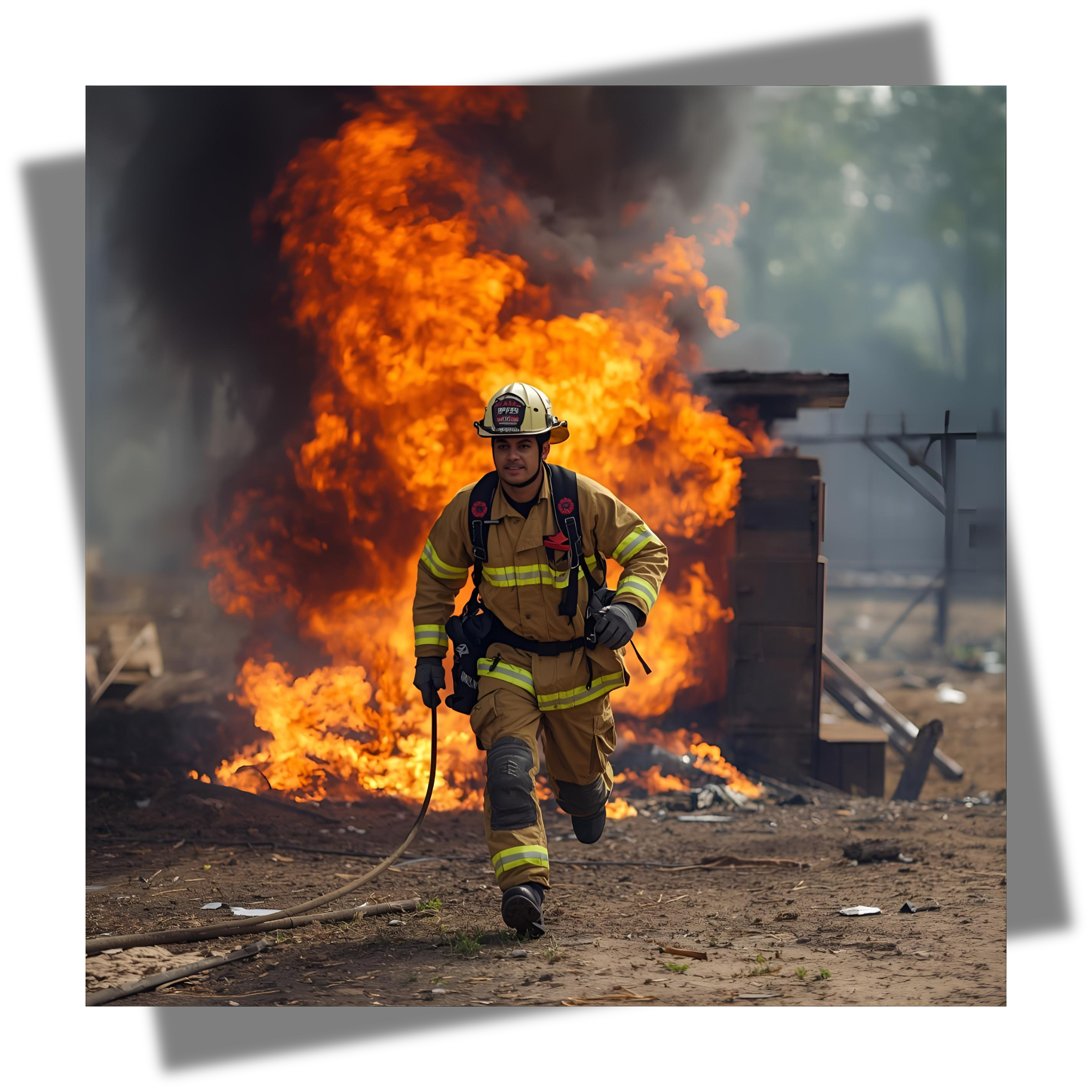Introduction
For firefighters, police officers, EMTs, and other first responders, the job rarely follows a predictable 9-to-5 schedule. Overnight calls, back-to-back shifts, and emergency responses often mean sleep is inconsistent, cut short, or disrupted entirely. Over time, lack of quality rest doesn’t just lead to fatigue—it affects performance, decision-making, mental health, and long-term physical resilience.
Yet sleep is one of the most powerful recovery tools a tactical athlete can use. With the right strategies, even in the face of unpredictable schedules, first responders can improve the quality of their rest and maximize recovery. This article explores why sleep matters, the challenges of shift work, and proven methods for improving sleep so tactical professionals can perform at their best—on duty and off.
Why Sleep Matters for First Responders
Sleep is when the body repairs muscles, consolidates memory, and restores energy for the next day. For athletes and tactical professionals alike, it is a critical component of recovery and performance.
When sleep is compromised, cortisol levels rise, immune function drops, and reaction times slow. For first responders, this can mean slower decision-making in life-or-death situations. Long-term, poor sleep is linked to cardiovascular disease, obesity, depression, and reduced career longevity. Simply put: consistent, restorative sleep is as vital as strength training, conditioning, or nutrition.
The Challenges of Shift Work
Shift work creates unique obstacles for sleep. First responders often deal with:
-
Irregular schedules: Rotating shifts make it difficult to establish a consistent sleep routine.
-
Overnight calls: Responders must wake suddenly, perform under pressure, and then attempt to return to sleep.
-
Stress and adrenaline: High-stakes calls leave the nervous system activated, making it hard to relax afterward.
-
Environmental factors: Trying to sleep during daylight hours often means noise, light, or family interruptions.
Understanding these challenges is the first step in creating strategies to overcome them.
Practical Strategies for Better Sleep
Create a Sleep-Friendly Environment
A dark, quiet, and cool room signals the body to rest. Blackout curtains, white noise machines, or eye masks can block light and noise. Keeping the room temperature slightly cooler (around 65°F/18°C) supports deeper sleep.
Establish a Pre-Sleep Routine
Even short routines signal the body it’s time to wind down. Stretching, light reading, meditation, or breathing drills help transition from high alert to rest mode. Limiting screens and bright lights in the hour before bed makes a big difference.
Manage Caffeine and Stimulants
Caffeine can be a lifeline during long shifts, but it lingers in the system for 6–8 hours. Limiting intake later in a shift helps reduce the risk of lying awake when it’s time to rest.
Use Strategic Naps
When full sleep cycles aren’t possible, short naps can help restore alertness and performance. A 20–30 minute nap can provide a significant boost without causing grogginess. For extended recovery, a 90-minute nap completes a full sleep cycle.
Nutrition and Hydration for Sleep
Heavy meals, alcohol, or dehydration can all disrupt sleep. First responders should aim for light, balanced meals before rest and stay hydrated throughout the shift. Supplements such as magnesium, collagen, or adaptogens (like ashwagandha) may also support sleep quality.
Stress Reset Techniques
After high-adrenaline calls, it can be hard to “switch off.” Techniques like box breathing, mindfulness meditation, or progressive muscle relaxation can calm the nervous system and make sleep more accessible.
Building Long-Term Sleep Resilience
Improving sleep is not about finding perfection—it’s about making consistent improvements over time. First responders should focus on controlling what they can: protecting the sleep environment, developing routines, and using tools to maximize recovery. Departments can also play a role by promoting education around sleep hygiene and structuring shifts with recovery in mind when possible.
The goal isn’t perfect rest every night but rather building habits that allow for the best possible recovery, even in difficult conditions.
Conclusion
Sleep may be one of the greatest challenges for first responders, but it’s also one of the most important factors in long-term performance and health. By creating better environments, developing consistent routines, managing stimulants, and using recovery tools, firefighters, police officers, and EMTs can improve their sleep despite demanding schedules.
When every call requires focus and resilience, quality sleep becomes a tactical advantage. The stronger your recovery, the sharper and more effective you are on duty.



